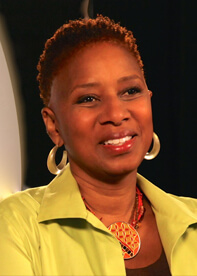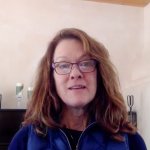Just How Safe Is Safe?
Thoughts on feeling safe during a crisis
By Dr. Thyonne Gordon
doctg@beyondstory.com
 This idea of safety has been sitting with me for a while. Even before COVID-19, I’ve wrestled with the thought of having the need to feel safe. Just what is safety anyway? It’s sort of like asking what is love. It’s different to different people.
This idea of safety has been sitting with me for a while. Even before COVID-19, I’ve wrestled with the thought of having the need to feel safe. Just what is safety anyway? It’s sort of like asking what is love. It’s different to different people.
Exploring the word safe, I considered the storage place for valuables, which is usually locked up to secure things. I also turned to baseball, where a baserunner is considered safe when reaching the destination without being tagged. And then I explored the definition as the place where one feels confident that they are not exposed, discriminated against, criticized, harassed, or caused emotional or physical harm. That is called a safe space.
Living in a country where policies for safe spaces must be created in the work environment, so that employees feel comfortable, is not a good sign that being safe readily exist. Still, the commonality in all of the definitions, and the wish for safety, floats around security. We long for security and when reaching this secure place of comfortability, it is then that one feels safe. Being comfortable makes one feel safe. However, just how safe is safe?
For me, safe places are illusions. We use the term a lot in diversity and inclusion efforts however, one cannot feel safe just by expanding the ratio of people with specific genders, cultures or ages. This is a false safe space because equity is not clearly apparent and that makes one uncomfortable.
With COVID-19 threatening our lifestyles and comfortability, there is an added threat to creating safe spaces. Social Distancing is used as a means to keep us safe, along with constant hand washing, using sanitizers, and in some odd way (which I haven’t quite figured out) hoarding toilet paper. Society gets comfortable with these as “the norm” and once again we feel comfortably safe.
This is not true safety and in fact, I’m not convinced that this feeling of being safe is even beneficial for us as human beings. I propose that we are better off not feeling comfortable or safe all the time, because in being uncomfortable, we create more of a sense of equity. And, with equity comes safety.
When we begin to think differently about safe spaces – we can actually open ourselves up to something that expands our consciousness. The physical space we’re in may not feel safe but we can shift our mindset to feel safe – even when we feel uncomfortable. We can be uncomfortable about who we are and where we’re headed. We can dive into a mindset where being uncomfortable is an asset. Most people feel uncomfortable at many points of their life and that is a starting ground for having equal footing. When we are in the most uncomfortable of places, is when we are truly on the verge of being safe. How is this?
It is generally agreed that in order to grow and develop, we must be willing to accept being uncomfortable. This means delving into places that are unknown and often standing on shaky ground. Being uncomfortable in these situations doesn’t mean you can’t face a challenge and get through it. Quite the contrary. Being uncomfortable allows our endorphins to kick into gear and steady us in the moment. Uncomfortability, forces us to change and be flexible to emerge stronger, in the face of adversity. It is our ability to adapt to certain forthcoming and demanding change, that inevitably will help us to create new networks and strategies. This is where safety begins.
Safety should never just be about ‘safety’ for feelings sake. Safety is about being alive and living. It is vibrant and active. It is about taking risks in order to take a firmer position. Safety is about educating and learning and failing and succeeding. Safety is about equity and respect for one another.
When safety survives as a stagnant way of being, to appease the status quo, we lose the path of possibilities. That comfortable place that makes us feel safe, may not be as safe as you think.
Now that there’s a crisis, we’re all in this together—we are equally at risk. Now is the the time to take a leap of faith and do something risky. Don’t run out hugging people, but find something that you’ve once felt uncomfortable about – and try it. Belt out that heart song or paint on that art canvas. Find the thing that makes you feel alive yet, it’s a little uncomfortable to stand in it. This is where you will find your growth and this is where you will find your safe space.
Live a little… run the bases… and take a risk to get to the heart of safety.
Thyonne Gordon, Ph.D., Chair, Pacifica Board of Trustees
Holding a Ph.D. in Human and Organizational Development from Fielding Graduate University, Dr. Gordon brings an extensive experiential background in organizational structure and management to Pacifica’s Board of Trustees. Dr. Gordon is a Business Profit Strategist, Producer and Writer working with small business Executives to accelerate their growth through her proven methodology of S.T.O.R.Y. (Structure, Targets, Ownership, Relatability and YOU). She joined the Pacifica Board of Trustees in 2007 and became Chair in 2015.




